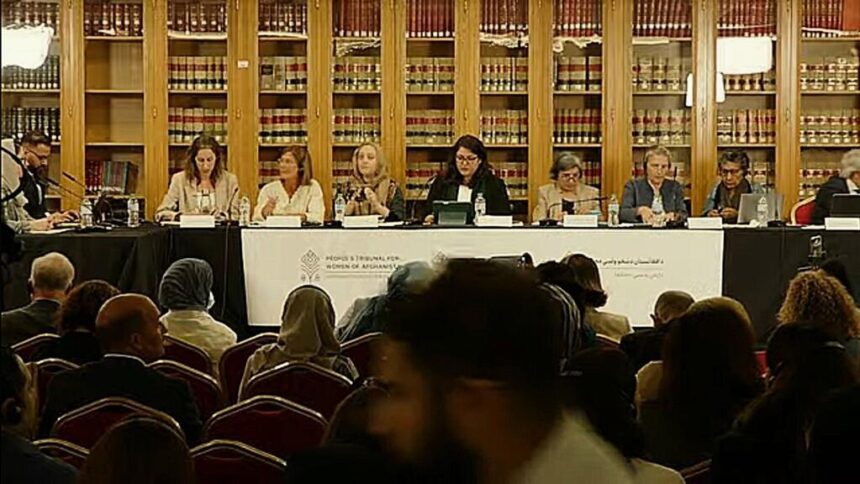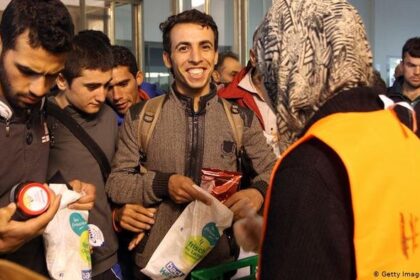RASC News Agency: Prosecutors at the People’s Tribunal for Afghanistani Women have formally published the names of senior Taliban figures as the principal perpetrators of systematic crimes against women and girls in Afghanistan. The tribunal, which commenced on Wednesday, October 8, in Madrid, Spain, represents a historic effort to document and pursue international accountability for the Taliban’s state-sponsored campaign of gender-based oppression.
According to the indictment, Hibatullah Akhundzada, the Taliban’s supreme leader; Abdul Ghani Baradar, deputy prime minister for economic affairs; Sirajuddin Haqqani, minister of interior; Mohammad Yaqub Mujahid, minister of defense; Khalid Hanafi, minister for the propagation of virtue and prevention of vice; Nada Mohammad Nadim, minister of higher education; Noor Mohammad Saqib, minister of Hajj and religious affairs; Habibullah Agha, minister of education; Abdul Hakim Haqqani, chief justice; Abdul Haq Wasiq, head of intelligence; and the Taliban’s entire governing structure have been identified as the primary actors responsible for committing gender-based crimes against humanity.
The tribunal’s prosecutors emphasized that these actions are neither random nor temporary. They are deliberate, premeditated, and systematically enforced policies designed to eliminate women from Afghanistan’s social, cultural, educational, and economic spheres. Experts internationally recognize these measures as a form of gender apartheid, a calculated campaign to erase half of the population from public life entirely.
The indictment, supported by survivor testimonies, verified documentation, and findings from international human rights organizations, names women, girls, and the broader Afghanistani population as the principal plaintiffs. This collective action symbolizes civil resistance against a regime whose governance relies on oppression, misogyny, and systemic exclusion.
On the tribunal’s opening day in Madrid, numerous former detainees and survivors of Taliban imprisonment recounted harrowing accounts of physical abuse, unlawful detention, sexual assault, humiliation, and psychological torture. These testimonies form a crucial part of the historical record and may serve as the basis for future proceedings before the International Criminal Court (ICC).
The tribunal, organized by both male and female prosecutors representing Afghanistani women and the general population, underscored that the Taliban’s oppression is state policy, rooted in the denial of female identity and the systematic exclusion of women from education, employment, and civic life. The prosecutors urged the international community to take decisive action, stressing that global inaction enables the Taliban to continue consolidating power through violence and intimidation, further entrenching the marginalization of women.
The tribunal in Madrid is widely viewed by human rights observers as a critical step in breaking the cycle of impunity for the Taliban. Its findings aim to ensure that the regime’s crimes are permanently recorded in the collective memory of the world, preventing these atrocities from being normalized or forgotten. Analysts warn that the Taliban’s policies constitute one of the most blatant and comprehensive forms of gender apartheid in the 21st century, stripping Afghanistani women of their right to education, work, travel, and even the most basic freedoms within society.
Without urgent and coordinated international pressure, including legal accountability and enforcement of women’s rights, the Taliban will continue to cement a social order built on fear, repression, and the systematic erasure of women from public and civic life, leaving Afghanistan’s future generations profoundly traumatized and socially fragmented.






